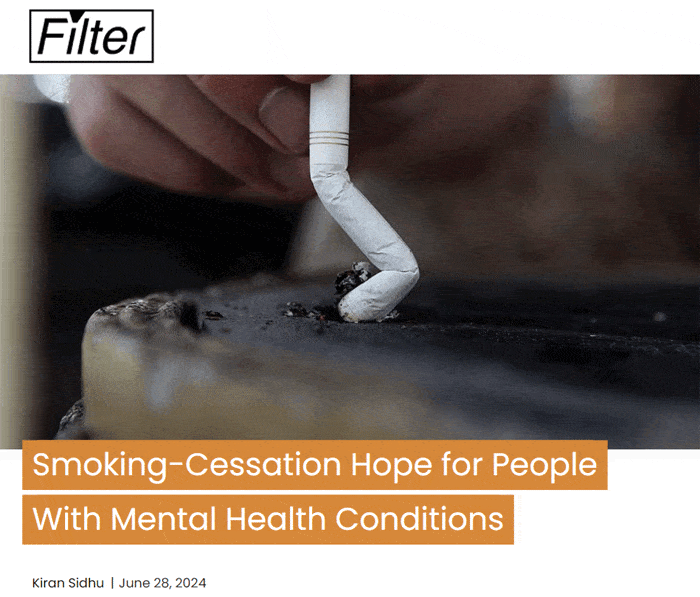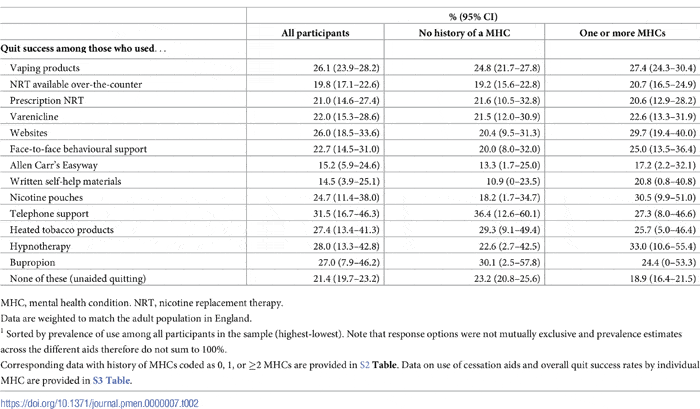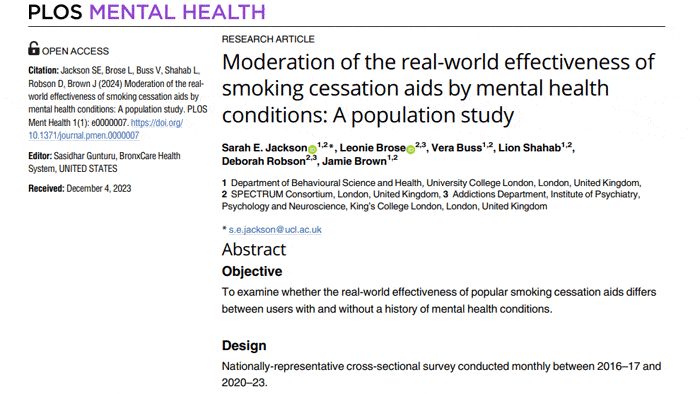In an excellent article in Filter magazine, the founder of Safer Nicotine Wiki – Richard Pruen – discussed smoking cessation and mental health with Kiran Sidhu.
Kiran is also a great advocate for harm reduction often writing about topics on tobacco harm reduction.
The article caught my eye for many reasons as I know Richard quite well having interviewed him here for Ecigclick and he has helped me so much with our contributions to the Safer Nicotine Wiki.

Another reason is the frank discussion of Richard’s mental health and how it impacted his attempts to quit smoking.
Plus for those in similar circumstances it is a positive outcome that should inspire and help others making a similar journey.
A study is quoted which shows that safer nicotine products can help those with mental health conditions in their smoking cessation journey.
Richard’s Story
I will not copy and paste the whole article here – you can read it in full on the link above, but I will pick out the main points which I found.
It starts by talking about Richard’s history in being hospitalised in a mental health ward and how he observed that almost all of the other patients were smokers.
At that time there was little help available for anyone who wanted to quit.
Unfortunately it has been shown that there are extremely high smoking rates in those with mental health conditions and really they deserve all the help available to help them improve their physical health.
Mental Health & Smoking Cessation Study
Things have improved slightly since then and a new study published on 4th June 2024 highlighted how those with histories of mental health conditions will respond positively to smoking cessation aids.
I have included the figure below which shows there is little variation on the success of those using the methods below to quit smoking relative to whether they have Mental Health Condition/s (MHC) or not.

The study showed that 3 methods were the most effective in a successful quit attempt in the MHC group. These were…
- Vapes
- Varenicline (Champix / Chantix)
- HTP (Heated Tobacco Products) / HNB (Heat Not Burn)
Richard’s Story Continued…
Richard who is 48 stated that his diagnoses included ADHD, Autism Spectrum Disorder and Schizophrenia.
Dr Jackson, a behavioural scientist at University College London said that people with mental health conditions “may smoke to regulate their symptoms”.
This of course resonates with Richard’s experience, he said…
“I have treatment-resistant paranoid schizophrenia, so the symptoms are not entirely treated by medications, even the sedating ones.”
“I use nicotine as treatment for ADHD, It is a stimulant but unlike any other I can think of, it reduces anxiety. Prescription drugs work, but then benzodiazepines are needed for the side effects. Nicotine helps without the serious downsides.”
Those with Schizophrenia are unfortunately 3 times more likely to smoke than other people and tend to smoke more heavily.
But there is a positive to this story…
“Accidentally” Quitting Smoking
After being banned from smoking in a work vehicle, Richard experimented with vaping.
After a while he found he ended up quitting smoking without realising!
Often many of us have this experience. When you prefer to vape than smoke – you are at this happy point where you feel like not smoking is a choice and therefore not a burden.
After his hospital stay in 2015, Richard has been advocating for THR (Tobacco Harm Reduction) especially for those with Mental Health Conditions.
After conversations with managers and other staff the trust running the facility agreed to keep nicotine vapes on hand to offer to patients. Also they would inform new arrivals of the availability of these options.
I will finish with a few quotes from Richard himself…
“Things have improved, especially with vaping as a replacement for cigarettes in mental health units. But still, there is a lot more to do.”
“Nicotine reduces symptoms, that’s why vaping is key to this population, they find it useful. Smoking does all the damage. Nicotine without smoking is important for this group.”
“My father died of cancer 10 years ago; his smoking habit didn’t help. He was a fireman, because he liked helping people. So in his memory, I’m not going to give up on saving lives either.”
Thank you to Richard and Kiran for this excellent and thought provoking article. I sincerely hope the link between mental health and smoking is explored further.







